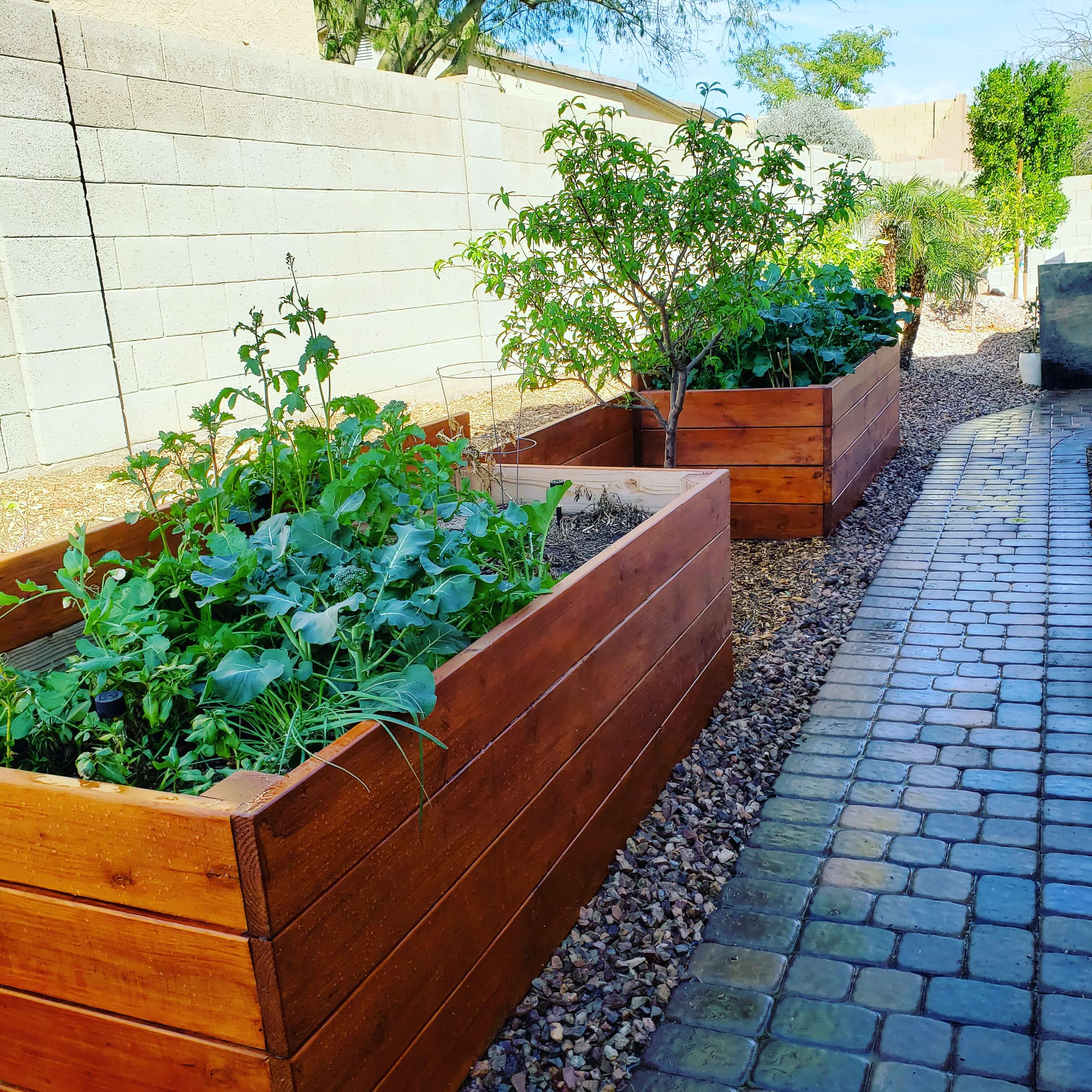Master Gardener Lee Stewart shares her tips for fall gardening
By Lee Stewart
It’s October, which means it’s time for pumpkin spice and everything nice. This means the warmer weather is diminishing, which happens to be wonderful news for people who want to start a garden. There may be those who are fearless enough to brave the summer heat to get a head start on soil prep for their fall garden. If you didn’t prep your soil before August, don’t worry—soil prepping can still be done in August and September.
Why Do I Need to Prep My Soil?
There may be those of you asking yourselves what exactly you should be doing to prep the soil for your fall garden. Prepping the soil means adding additional organic soil that has been composting for at least six months to a year. If you live in northern climates or cooler climates, composting can take up to two years.
Adding fertilizers to the soil is also very beneficial in prepping your fall garden. When a vegetable grows in the garden, the vegetable utilizes nutrients from the soil, and those nutrients then need to be replaced. Therefore, soil prepping and amending are important to replenish nutrients in prep for the next season.
Organic Amendments
A few of the organic amendments that are more commonly used are worm castings, azomite and alfa pellets. Amendments or fertilizers should never be added to frozen ground.
These amendments benefit the soil in various ways. Worm castings provide beneficial microbes that aid plant growth, assist with
moisture for soil, provide nitrogen, potassium, magnesium, calcium and phosphorus, and assist with fighting off diseases. Just like we need trace minerals for our bodies, plants need trace minerals which contain essential elements that aide in plant growth.
Eventually, plant propagation and leaching due to watering and or irrigating can deplete essential minerals and micro-nutrients from the soil over time. Azomite is a mineral rich rock dust that helps give back to the soil by supplying nutrients so that your plants thrive. Alpha pellets should be utilized a month before planting. Alpha pellets serve as a good weed blocker and provide micronutrients for crops such as broccoli, Brussels sprouts, cabbage, collards, kale and kohlrabi. Alfalfa pellets contain calcium, iron, magnesium and zinc. Alpha contains triacontanol ,which will help in stimulating new growth in the spring. Scratching the alpha pellets into the soils surface at a rate of 2 to 5 lbs. per square foot is enough. Be sure not to put it in the planting hole. You can also create alfalfa tea and disperse alfalfa that way for your roses.
When to Plant
October through February is the ideal time to plant your winter vegetables. During October, the ground is still warm enough for planting seeds. A few winter vegetables you can plant are beets, collard greens, onions, kale, spinach and much more. The fall and winter vegetables will do best if they are mature before the summer heat or when the temperatures fall.
Watering Needs
A proper watering system is highly important to ensure that your garden is thriving. Whether you have an in-ground garden or raised garden bed, ensure that your irrigation system is set to the correct water disbursement for the season change.
There are many components to ensuring that you have a successful growing season. The benefits of reaping from your own garden are priceless. Eating from your own garden ensures that you are receiving 100% of all the nutrients the vegetable can provide. We waste so much food when we shop for vegetables in the market. Being able to pick only the amount of food you need for your meal helps keep your cost and waste down—not to mention this will avoid that science experiment that occurs when we forget about the vegetables in our refrigerator drawers!
Another benefit of reaping from your own garden also benefits your cognitive functions by combating depression, anxiety, PTSD and much more. There are many people who would like to reap the benefits of gardening but feel that it is impossible. This is one of the many reasons that I started my company, Veg Up Get Dirty. For many years it has been my passion to teach others about healthier eating practices. I started Veg Up Get Dirty several years ago as an edible landscape company. I am a certified master gardener and mentor for the Maricopa Extension program with the University of Arizona. Since starting the company, I have had the pleasure of assisting with gardens in Montessori schools, residential homes, offices, balconies, patio homes and more.
Additional Services
Additional services I provide are gardening consultations, designing of your garden, custom building of gardens, servicing existing gardens, and education. Recently we implemented a gardening coaching service to educate individuals to take control of their own garden. You may be asking what does this service look like? I come out to the location and conduct a 90-minute assessment/consultation. During this assessment I look at your area to find the best placement for your garden, assess for amending needs for your already-existing garden, educate, and assess possible watering distribution to the garden.
Keep up with everything Green Living by visiting our website.
Lee Stewart is the owner of Veg Up Get Dirty. Learn more at www.vegupgetdirty.com.
Photos courtesy Lee Stewart







